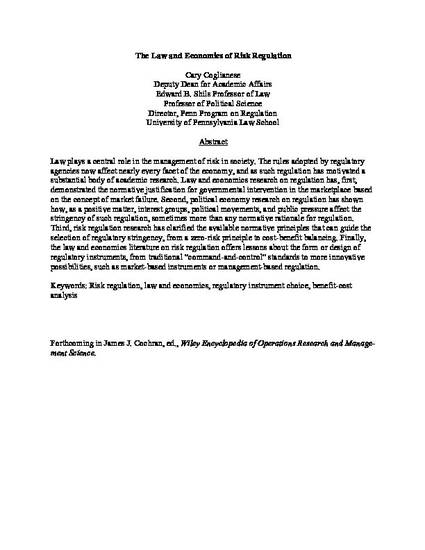
Law plays a central role in the management of risk in society. The rules adopted by regulatory agencies now affect nearly every facet of the economy, and as such regulation has motivated a substantial body of academic research. Law and economics research on regulation has, first, demonstrated the normative justification for governmental intervention in the marketplace based on the concept of market failure. Second, political economy research on regulation has shown how, as a positive matter, interest groups, political movements, and public pressure affect the stringency of such regulation, sometimes more than any normative rationale for regulation. Third, risk regulation research has clarified the available normative principles that can guide the selection of regulatory stringency, from a zero-risk principle to cost-benefit balancing. Finally, the law and economics literature on risk regulation offers lessons about the form or design of regulatory instruments, from traditional “command-and-control” standards to more innovative possibilities, such as market-based instruments or management-based regulation.
- Risk regulation,
- law and economics,
- regulatory instrument choice,
- benefit-cost analysis.
Available at: http://works.bepress.com/cary-coglianese/73/

The Law and Economics of Risk Regulation, in Wiley Encyclopedia of Operations Research and Management Science (James J. Cochran ed.) (forthcoming).